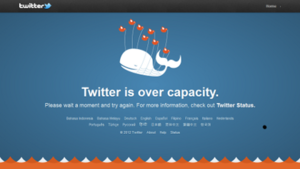The Golden Triangle of Tech Applies to eLearning Solutions too!: "The question I get the most these days is, "Brent, what's the next big thing you see out there in eLearning". The simple answer is, "not much". But that doesn't mean there isn't exciting innovation happening. The big innovation over the last year has not been a new technologie or app, but the convergence of some, or many existing technologies. Alone they are simply isolated fun little apps, but combined with several other apps or technologies they begin to take shape into the powerful life-changing tools they were meant to be. And that magic convergence has recently been given a name:
The Golden Triangle.
I stumbled onto a blog post from
A VC blog. The author could not remember who said it but I thought it was pretty cool too:
'The three current big megatrends in the web/tech sector are mobile, social, and real-time.' That's the golden triangle. Mobile, Social, and Real-time. Apparently, new startups that have a golden triangle are deemed highly likely to have a successful company/product to offer. Certainly there's more too it than that but I digress. How does The Golden Triangle apply to eLearning? One word - PERFECTLY!
MOBILE, the first of the 3 sides is obvious. Everything is going mobile. I love my iPhone more than any other technology I have ever owned. One thing I discovered early in my iPhone experience was apps that were MORE than just iPhone apps became the most used and applicable to my work and life flow. More than just an iPhone app means that it also has a desktop and/or cloud counterpart. Think banking. My accounts reside in the bank's servers (their cloud). I access my bank information from both my desktop AND my iPhone (and the physical location, but not that often). I can watch video, do email, text messaging, record video, take pictures, and on and on with one simple device that fits in my pocket. THAT, in my humble opinion is the coolest thing EVER!
The second side of the triangle, and only slightly less cool, is SOCIAL. Many "learning gurus" have stated that
all learning is social and many others have argued against that statement. I think the biggest issue is the use of ALL. Anytime you say "all" you're sure to set off somebody, somewhere, who can come up with an exception or two. The reality is that our nature is to be social. Facebook, LinkedIn, blogging, and all social networks in general, give us the ability to find other people we want/need to connect to for any number of reasons. In these spaces we build groups, or networks, of friends/followers who share their knowledge with us. Before the internet our networks were important but it was a complicated, and long process to gather and maintain a professional network. With today's web-based social networks it's almost too easy to create connections across many channels. In the long run the knowledge resides less in your own brain and more in the collective brain of the network. Let's argue that point later, but for now it certainly seems to be moving in that direction. So, SOCIAL connectivity is important to the future of our personal learning environments.
And lastly we have the REAL-TIME completing the third side of the triangle. Twitter is the best example of real time. And yes, twitter can also be considered SOCIAL, but the piece that makes twitter and micro-blogging different is that the conversations you see are the conversations happening RIGHT NOW. Conversations that happened yesterday, or even 2 hours ago or less, will run off the bottom of the interface and not be seen unless you search, or sort by hashtag. Even then, the real use and benefit is in the real-time nature of the tools. Its the idea used by many that its like jumping into and out of a giant cocktail party and actually listening to all the conversations that are going on simultaneously. While that can be overwhelming, it can also be quite exhilerating.
So, can our learning content be created for mobile devices with a social element connecting us with subject matter experts that we can access in real time? I think so. There's also no reason why all 3 sides of the triangle can't be tracked AND measured. The current problem seems to be the legacy systems trying to make new media work with old media systems. There is also a legacy of design that the golden triangle does not yet fit into. At least it does not fit well.
I feel like many people are already learning in a personal environment that reflects the golden triangle with the existing tools. And that's what seems to be frustrating to many. There is no control of it just yet, and so many need that sense of control. It will come in time. It won't be exactly like this. But it will be close. Perhaps it will end up being a Golden Square, or hexagon. For now, I like the simplicity of the triangle and hope we can figure out how to make it happen.

![Reblog this post [with Zemanta]](http://img.zemanta.com/reblog_e.png?x-id=40cb3304-3c71-4a3a-99a4-159ae2a142d9)

![Reblog this post [with Zemanta]](http://img.zemanta.com/reblog_e.png?x-id=c0377b95-f0dc-478d-a3e4-19801afc615f)






